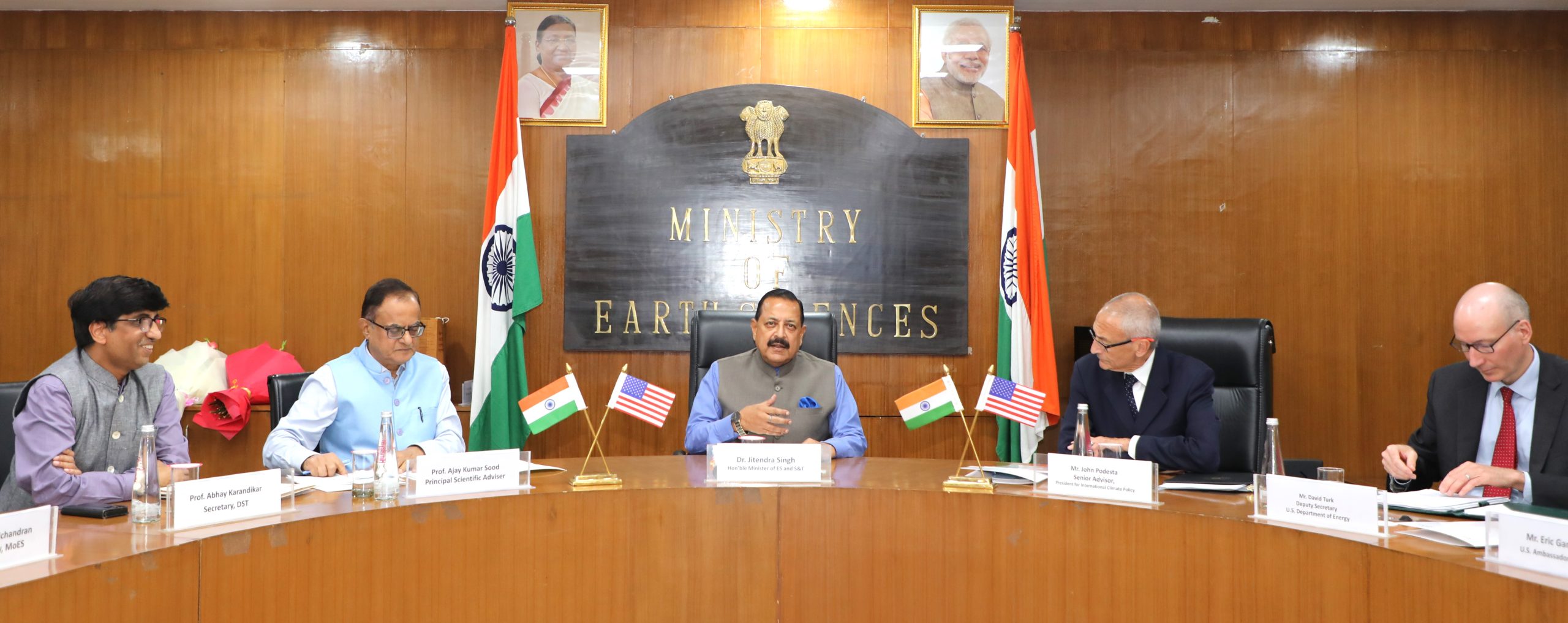New Delhi: Union Minister Dr. Jitendra Singh chaired a pivotal bilateral meeting on US-India Civil Nuclear Commerce at Prithvi Bhavan, marking a significant deepening of cooperation between the two nations in science, technology, and clean energy. The meeting highlighted the growing partnership in critical sectors, from space exploration to clean energy technologies, which are vital for securing global supply chains and addressing climate goals.
Dr. Jitendra Singh made a landmark announcement, revealing that an Indian astronaut from the Gaganyaan Mission will soon join the International Space Station, marking a major milestone in Indo-US space collaboration. He emphasized that this partnership extends beyond space, impacting global supply chains in sectors such as semiconductors, pharmaceuticals, and clean energy—fields essential to a resilient and sustainable global economy.
The Union Minister underscored the importance of India’s Green Hydrogen Mission as a cornerstone of the country’s strategy to decarbonize heavy industry, transportation, and power generation. He noted that international collaboration and strong policy frameworks will help drive innovation in clean technologies, positioning India as a global leader in sustainable energy.
Another key focus was the development of Small Modular Reactors (SMRs), with Dr. Singh highlighting India’s plans to invest in research and international partnerships to support the deployment of these reactors. He emphasized that SMRs would contribute significantly to India’s clean energy transition, enhancing energy self-reliance and helping meet climate commitments.
Drawing a comparison between India’s “Anusandhan” National Research Foundation (NRF) and the United States’ National Science Foundation (NSF), Dr. Singh highlighted the essential role of these institutions in advancing scientific research and innovation. He reaffirmed India’s commitment to the “Panchamrit” climate action plan, which aims to boost non-fossil energy capacity to 500 GW, reduce carbon emissions by 1 billion tons, and achieve net-zero emissions by 2070.
Senior Indian officials, including Dr. A.K. Sood, Principal Scientific Advisor to the Government of India, and Dr. Ravi Chandran, Secretary of Earth Sciences, echoed the importance of the Indo-US collaboration. Dr. Sood emphasized the potential of co-creating solutions for sustainable development, while Dr. Chandran highlighted advancements in ocean energy and Carbon Capture, Utilisation, and Storage (CCUS) technologies.
The high-level US delegation was led by John Podesta, Senior Advisor to the President of the United States for International Climate Policy, and David Turk, Deputy Secretary of the U.S. Department of Energy. Both nations reaffirmed their commitment to strengthening cooperation in emerging technologies, emphasizing mutual interests in economic growth, national security, and global leadership in technological advancements.





